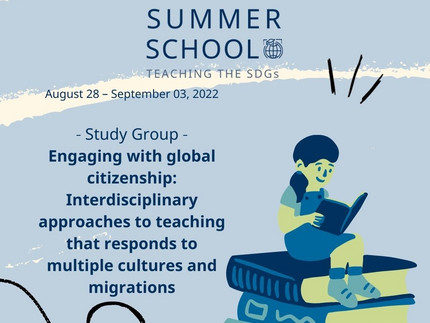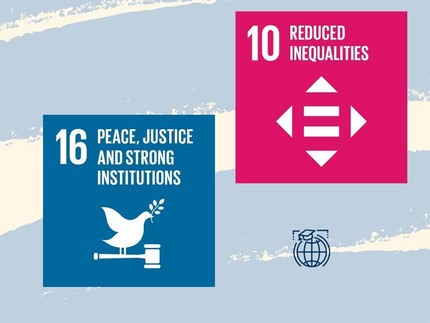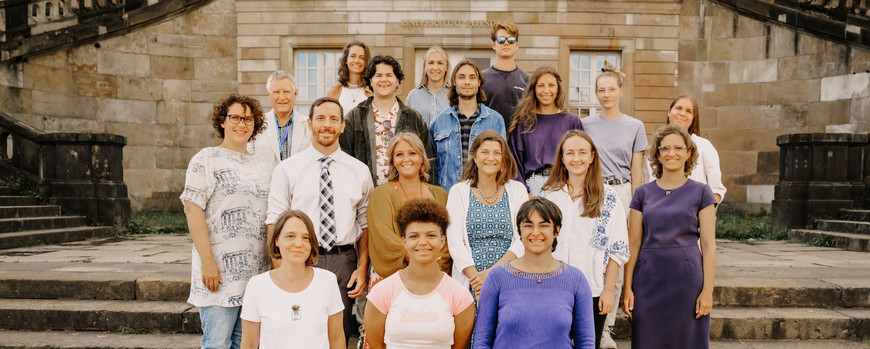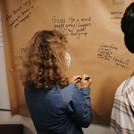Study Group English / History / Social Studies:
"Engaging with Global Citizenship: Interdisciplinary Approaches to Teaching that responds to multiple Cultures and Migrations"
The Study Group “Engaging with Global Citizenship” pursued the overall goal of an interdisciplinary approach to global citizenship education, centering on issues of migration, language and culture, and identities. Instructors from the fields of English language education, literature, and history guided participants in developing their understanding of historical and contemporary migrations, and of transformative, culturally responsive pedagogy that empowers diverse learners. Course readings and activities were drawn from history and language education and guided students to critically examine (mis-)conceptions and ideas about migrations and identities, their impacts on communities and classrooms, and teachers’ strategies for communication and curriculum. The exchange with international fellow students, first online and then in person during the Summer School, was designed to deepen this learning experience. Some of the issues that were examined from different disciplinary perspectives included questions such as the following:
- What ideas or (mis-)conceptions about history, migrations or identities do learners bring to the classroom? How can teachers challenge problematic scripts (e.g. about ‘who belongs’) and contribute to more inclusive narratives?
- How can we disrupt common scripts, misconceptions or (myth)stories through the use of stories or historical narratives?
- In what ways are migrants (and refugees) represented in the media / in course books and how do these representations shape perceptions?
- How can stories of migration contribute to understanding migration issues?
- How do / can I as a teacher use language as a tool that includes and empowers learners?
The Summer School week included reflection activities as well as classroom discussions on these issues and gave students the opportunity to explore three specific areas within Global Citizenship Education in international teams: 1) “hard history” and anti-bias pedagogy; 2) linguistic and cultural diversity in the classroom; and 3) voices, visuals, and the learning environment.
Student Learning Outcomes:
By the end of the Summer School, students were able to:
- articulate coherent goals for global citizenship education and how these shape teaching and learning in a variety of disciplines, and educational settings
- analyze and evaluate strategies for transformative pedagogy that promotes an active, inclusive and equitable learning environment and empowers diverse learners to take informed decisions and act as agents of change
- analyze, assess and articulate the role of language, and its negotiation, in the teaching-learning dynamic, including sensitive contexts
- reflect upon and articulate factors shaping teachers’ and students’ identities within a range of overlapping spheres, from the personal and local to the global.
- articulate ways that migrations (including (non-)settlements have shaped histories and identities, and ideas about them, from the individual and local levels to national and global levels.
- apply concepts from migration studies, historical understanding, and additional fields to analyze current issues and debates about migrations and identities, including educational challenges and responses if appropriate.
- apply their course learning to practical problems, in education and other social arenas, through course activities and in a final team project/presentation.










